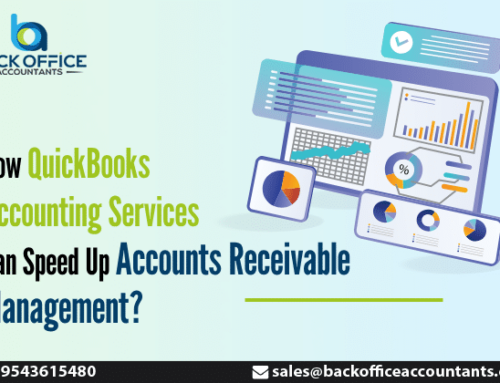Timely account reconciliation is an alarm for potential financial risks that include limited payments, unusual financial patterns, & discrepancies that fall out of the norm. Without reconciliation, there is no adequate way to determine which payments haven’t made the way yet through – a common problem in businesses with high volume transactions.
Accurate bank reconciliation validates data entry, ensures its accuracy, simplifies tax reporting and identifies new opportunities for improved cash flow. Yet businesses yet fall behind in performing regular bank reconciliation due to its time-consuming, complex and resource-intensive nature. But they are not the only reasons for the reluctance to adopt regular reconciliation. Businesses often run into a variety of challenges due to the above reasons, which come in the way of realizing the benefits bank reconciliation has to offer.
To leverage the complete benefits of reconciliation, the business has to tackle and annul them effectively and in this blog, we are going to show you how. With the inputs of our accountants at Back Office Accountants, we have listed down the 5 major account reconciliation challenges and solutions in this blog here for you. Read on to know:
5 Major Reconciliation Challenges and Their Solutions:
Judging the deposits in transit: Deposits in transit always plays a spoilsport in reconciliation. It can particularly deter the process when the date in the books doesn’t match with the bank records during the fiscal period. It is a basic yet common challenge faced by all businesses when the reconciliation is not performed at regular intervals. And a simple solution is to stick to considering the entity only after it is deposited. Businesses can even mention an entry for deposits in transit, this way it is easy to not run into major problems during reconciliations.
Unstandardized reconciliation process: The lack of a standard reconciliation process is one of the key problems faced by businesses that resort to manual reconciliation procedures. Having separate entities that operate different parts and steps of reconciliation procedures naturally creates disarray and room for inaccuracies and errors. Leveraging the right tools to automate the tedious and problematic parts of the reconciliation process is the best way to standardize the process. If the process is too complex to handle one can outsource the reconciliation to remote accounting firms specializing in account reconciliation.
Unauthorized withdrawals: When the volume of the transaction goes heavy, unauthorized withdrawals can be hard to catch. Not only have they led to misuse and hit businesses hard they can ruin the reconciliation even if they are a result of oversight. Fortunately, bank reconciliation gives us an easy way to detect them even in manual accounting settings. The simplest way to overcome this challenge is to improve the visibility of the accounting process and ensure stringent security practices – both physical and virtual. If you utilize remote accounting firms to outsource your accounting services, then ensure the same security standard are met by the forms handling your transactions too.
Errors and Bank Fees: There is no harder accounting task than the reconciliation of erratic accounts. While both bank and business accounts are culpable for mistakes here, more often than the mistakes happen on the bank side. In a few cases like missed checks, the errors can be unavoidable but the account entry errors must be readily curbed for smoother transactions.
Over-the-board bank fees are another common challenge faced by small and medium businesses. Penalties like overdraft fees and NSF can stealthily mount without reconciliation. If the fee is unavoidable it is advised to look out for banks that offer a convenient and lenient fee schedule to reduce the cost burden and simplify the reconciliation procedure.
Higher transaction volume & compliance requirements: Even the simplest accounting procedure can turn complex when the volume of transactions runs heavy. No point to guess how complex reconciliation can turn out to be when the transaction volume soars. In addition to reconciliation work, the need for compliance also amplifies hand-in-hand posing quite a challenge for the accounting teams. Add this to frequent errors, unclear or unrecorded transactions, data mismatches and inconsistent reconciliation – the whole process can be a nightmare.
However, these problems can be tamed by leveraging robotic automation tools or outsourcing accounting reconciliation work to capable remote accounting teams. Even better if you can find a remote accounting firm with the right technology stack that can simplify the process and provide strategic help with this process – like us at Back Office Accountants.
While accurate and efficient reconciliation is paramount, the role of reconciliation is not limited to just matching the records. Consistent reconciliation is also a footbed that can identify and generate insights and trends for effective financial planning. The right accounting partner can glean the right insights by analyzing the reconciliation procedures for further optimization.
Why Choose Back Office Accountants to Outsource your Bank Account Reconciliation?
As a remote accounting firm specializing in delivering outsourced bank account reconciliation services for all types of businesses. We also provide Accounts Payable Accounts Receivable, & Full-service back office accounting which keep us in a unique position to leverage the insights and provide strategic help to improve your financial performance.
For example, we have had a client at Back Office Accountants whose cash flow problems were solved by a simple analysis of the reconciliation statements. We set up a standardized reconciliation process, and streamlined the reconciliation and reporting consistently. Given we also offer full-service accounting services we set ourselves to improve the cash flow – a key concern for the respective client. And efficient reconciliation helped us solve the problem. By analysing the reconciliation statement we have identified the clients who consistently pay up late. Our Accounts Receivable experts crafted better terms to further improve the collection. The overall incidence of late payments was also factored into the cash flow model for better financial forecasting.
That said, in addition to full-service accounting, we also offer standalone bank account reconciliation services for businesses that need specific help with their reconciliation work. You can find more information about our bank account reconciliation services here: https://www.backofficeaccountants.com/








